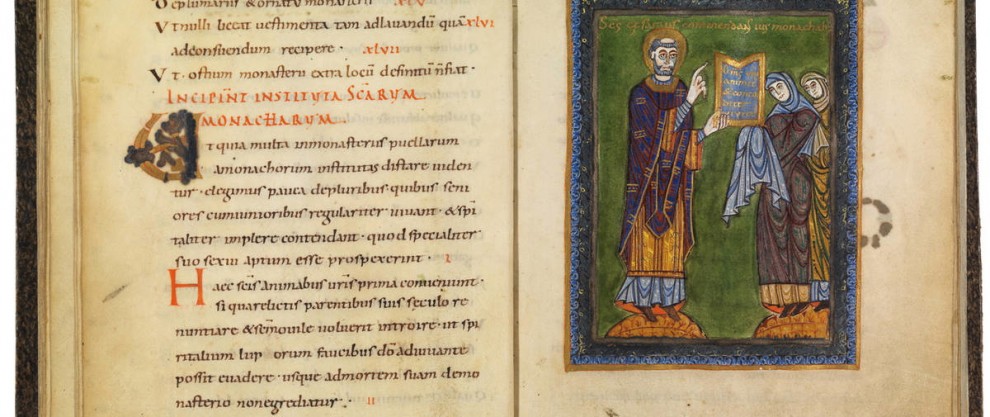Today (August 27) is the day Ceasarius, Bishop of Arles, died in the year 542. He is most important because of things he didn’t write.
Caesarius never wanted to be original, and he wasn’t. He was a conservator and transmitter of the Christian tradition as he received it. He had been a monk at Lerins in the decades just after Vincent of Lerins made his famous statement that “we take the greatest care to hold that which has been believed everywhere, always and by all. That is truly and properly ‘catholic,’ as is shown by the very force and meaning of the word, which comprehends everything almost universally.”
In particular, Caesarius would not be insulted to learn that his position in the history of Christianity is as a propagator of the influence of Augustine. Caesarius chaired the Council of Orange, which denounced semi-pelagianism on one side and deterministic predestination to evil on the other side. Caesarius evidently operated with a deeply thought-out concept of God’s grace, which enabled him to affirm salvation sola gratia like a radical Augustinian, and preach 250 sermons that emphasized the need for rigorous moral progress in the Christian life. (I don’t think his treatise De Gratia has been translated into English.) He also authored a strict rule of monastic life, but that has been superseded by the far more influential Rule of Benedict.
Caesarius is a case study in what happens to a theologian for whom conservation is the main goal. There are two classics of the Christian tradition that are transmitted through him: first is the Athanasian Creed, and second is the prayer called Te Deum. Both of these are first found in the writings of Caesarius. They must be older than him, because he reports them as already being influential, but they are first preserved by him, and we have no older occurrences.
The Athanasian Creed, as you can tell by the title, is traditionally associated with the fourth-century father Athanasius, though it obviously can’t have been authored by him –whoever wrote that creed had read a lot more Augustine (born 354) than Athanasius (died 373) could have. The Te Deum, on the other hand, is traditionally connected to Augustine. In fact, the legend is that he and Ambrose of Milan composed it extemporaneously on the occasion of Augustine’s baptism. But that legend probably dates from centuries after the fact, and the Te Deum itself first appears in Caesarius.
Not only didn’t Caesarius write the two most important things in his body of work: Even the people who supposedly wrote them didn’t write them! Again, I don’t think Caesarius would have minded any of this. He didn’t have a historical-critical bone in his body, even by comparison to his contemporaries. And he was trying to transmit the great Christian tradition, not the work of anybody in particular.
So you can’t really commemorate Caesarius of Arles today without commemorating the great Christian tradition, of which he was a conduit. Which means he succeeded in his life’s work.
